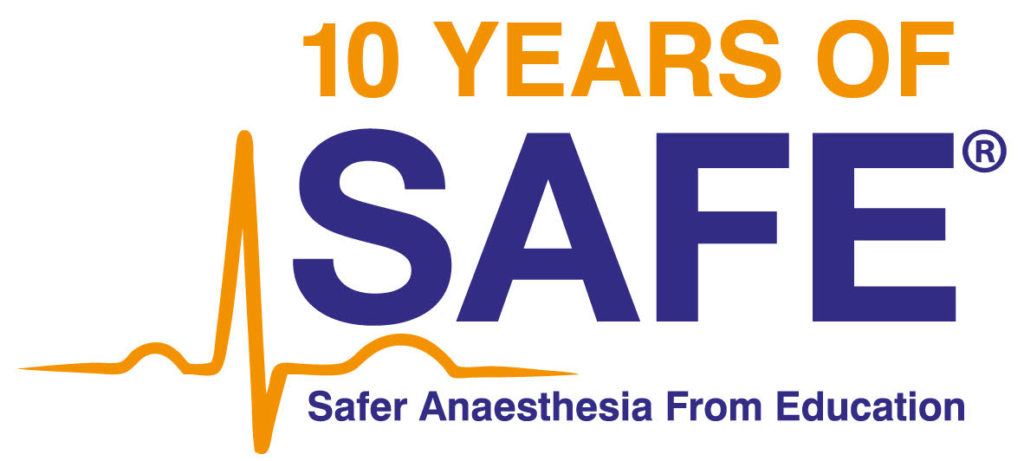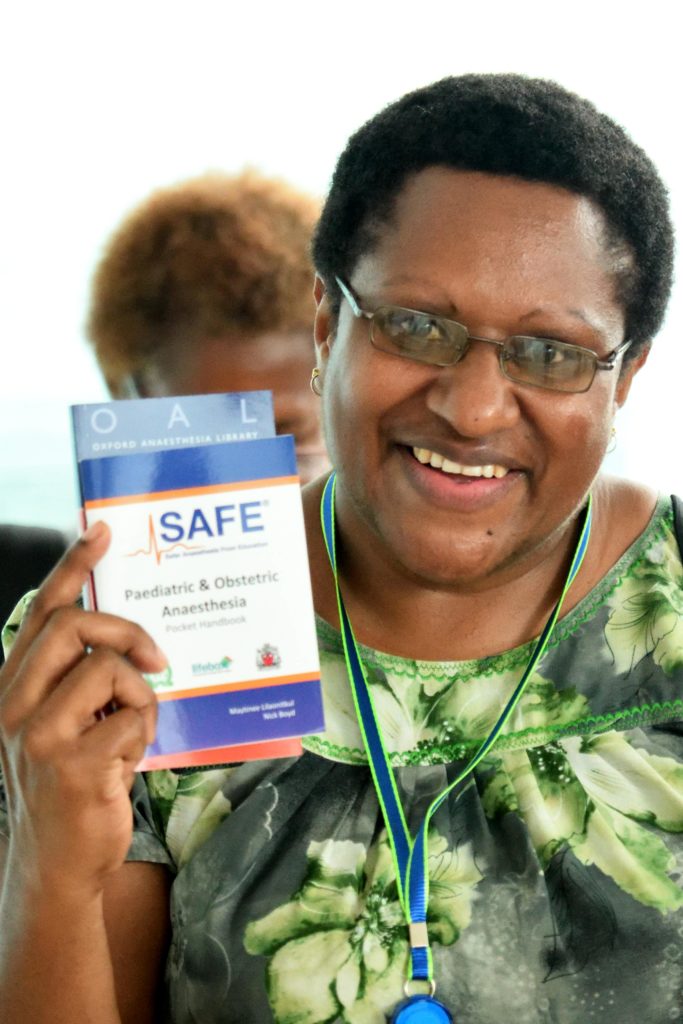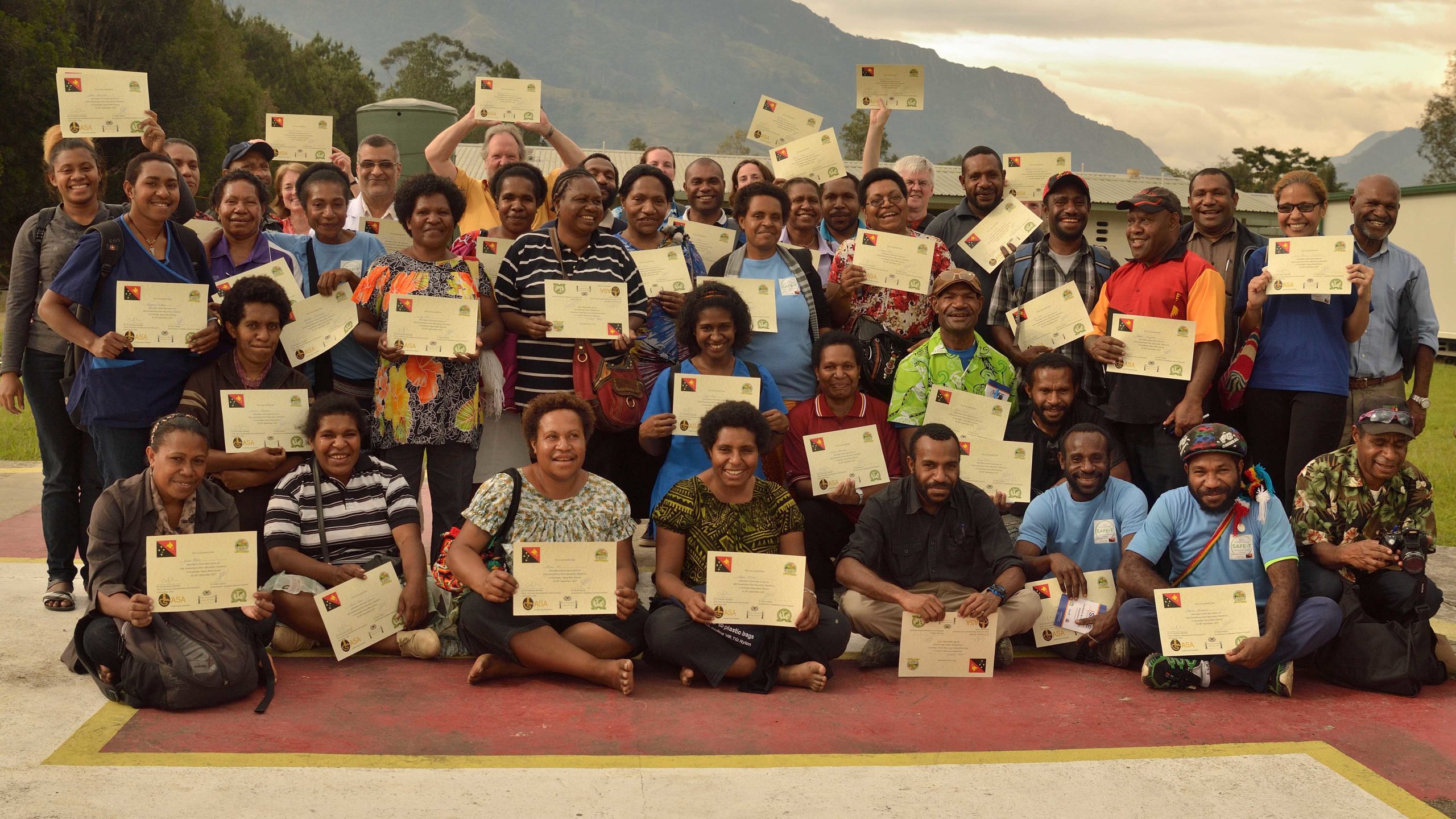With limited opportunities for professional development and networking in Papua New Guinea, Prof Terry Loughnan outlines how SAFE courses have proved to be a popular and vital programme for the country’s anaesthesia community.

Papua New Guinea (PNG) is a sovereign nation just to the north of Australia and shares a border with the Indonesian provinces of West Papua. It is regarded as a poor country with high population, enormous infrastructure issues because of mountainous terrain and very high rainfall making travel extremely difficult. It has a population estimated to be around 8.78 million with maternal mortality dropping from 250 in 2000 to 145 per 100,000 live births in 2017.
The most recent estimates, published in 2016, have indicated that around 70% of anaesthesia providers in Papua New Guinea (PNG) are non-physicians anaesthetic providers (NPAPs) and that they administer over 90% of anaesthetics with a significant number unsupervised by a physician anaesthetist. PNG has a physician anaesthetist ratio estimated to be 0.25 per 100,000 population while Australia and New Zealand have a ratio of 19 physician anaesthetists per 100,000 which is 75 times that of PNG. So, the challenges in PNG were to address a very high MMR, very poor socio-economic environment, extremely remote villages and a maternity workforce in anaesthesia provided by non-physicians.

SAFE Obs commenced in Port Moresby, the capital, in 2015, and from the start, local specialist anaesthetists were enlisted in coordinating and delivering the program and the course participants included specialist trainees, non-physician anaesthesia practitioners, midwives, obstetricians and health extension officers. It was the plan to provide a SAFE Obs course in each of the Provinces over the next few years.
A second course was conducted in Port Moresby in 2016 and then in the highlands in Kundiawa in 2017. Support for the program was provided financially by the Australian and New Zealand College of anaesthetists and anaesthetists from Australia and New Zealand volunteering their time.
In addition to these courses PNG anaesthetists also travelled with us to conduct SAFE Obs courses in Marshall Islands for Micronesia (Dr Lisa Akelisi-Yockopua) and in Fiji (Dr Pauline Wake and Dr Nancy Kwara). Unfortunately, no further courses have been able to be conducted because of Covid despite funding for a course in Madang having been obtained and the course being arranged.
The highlights of SAFE Obs in PNG have been the support and facilitation provided by local staff, the support of specialist colleagues to be involved as volunteers and the success of using local colleagues to conduct these courses in neighbouring countries. Participation has been strong with practitioners desperate to upskill in a non-judgemental but inclusive fashion where networking and looking for solutions from local colleagues has been promoted.
Assistant Prof Terry Loughnan FANZCA
Further resources
Safer Anaesthesia From Education (SAFE) information page
SAFE Paediatric & Obstetric Anaesthesia Pocket Handbook
‘I have watched SAFE grow and grown with it’ – Dr. Mary T. Nabukenya, Uganda.
‘I find myself learning something new with every course’ Dr Ann Lee Clover , South Africa






